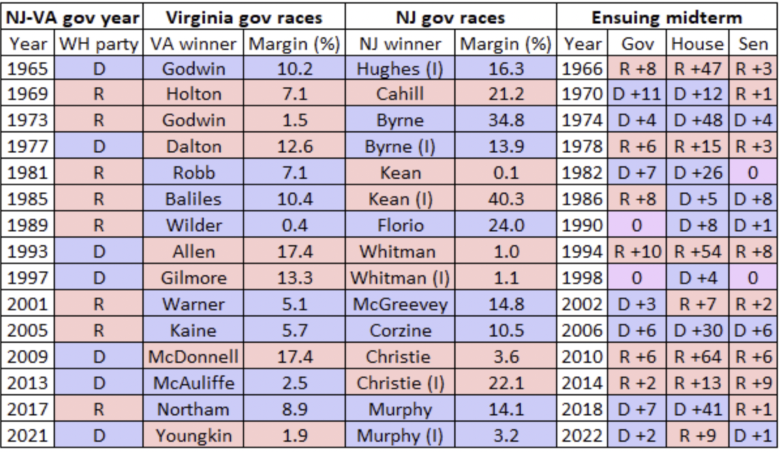Thousands of voters have already gone to the polls in New Jersey and Virginia, with tens of thousands more before the polls close next week. Historically, the party that holds the White House typically loses these off-off year elections, but what about the Midterms that follow? The Center for Politics’ historical break down of these election cycles for the last 60 years cautions blanket assumptions to any result.

By The Numbers:
Some gubernatorial elections predicted what was to come the next year: Republican victories in 1993 were the early signs of the 1994 “Republican Revolution.” Democratic victories in 2005 were early signs of their successful 2006 Midterms, as were the 2009 NJ and VA Republican victories that went on to see big GOP gains in 2010. These are the only three instances where one party swept VA, NJ, as well as the ensuing Midterm Election.
Abnormalities in the 1973 (White House corruption) and 2013 (multi-ticket and government shutdown) gubernatorial races hindered predictions. There would be Democratic victories in 1974 and Republican victories in 2014, despite each party losing in 1973 and 2013, respectively.
The 1969, 1981, 2001, and 2021 elections didn’t line up as neatly for the Midterms that followed, though there were exceptions. The Democrat wins in Virginia in 1981 lead to a decent Democratic performance in 1982, and Republican wins in Virginia in 2021 previewed the GOP flipping the House in 2022.
The Bottom Line: Overall, some New Jersey and Virginia gubernatorial elections have followed that party’s victory in the subsequent midterms. However, there are plenty of examples when they didn’t. Pundits should resist the urge to automatically apply next week’s results to next year’s fate.